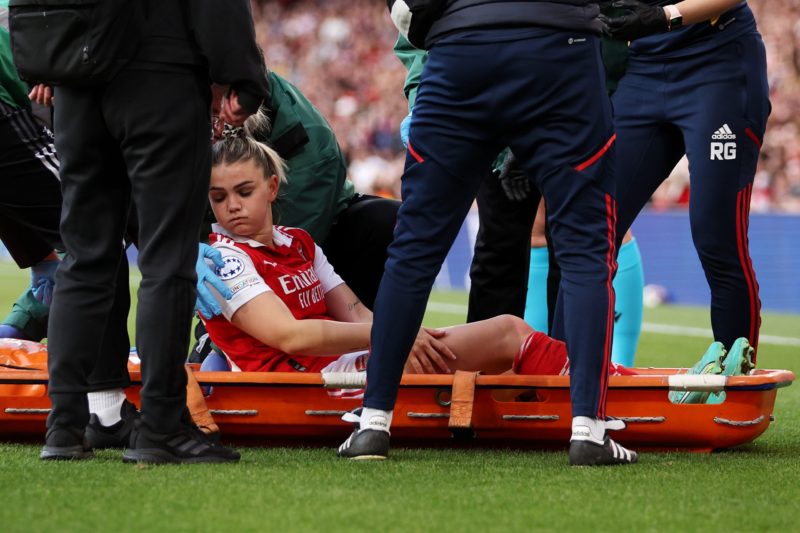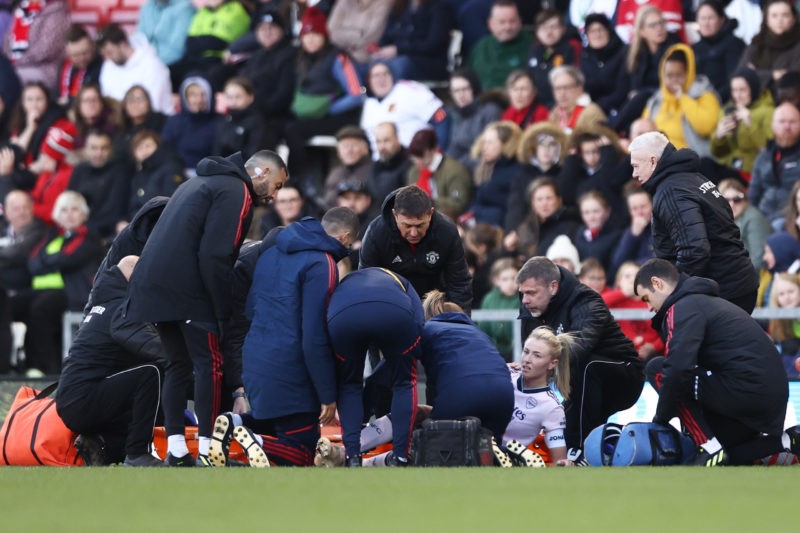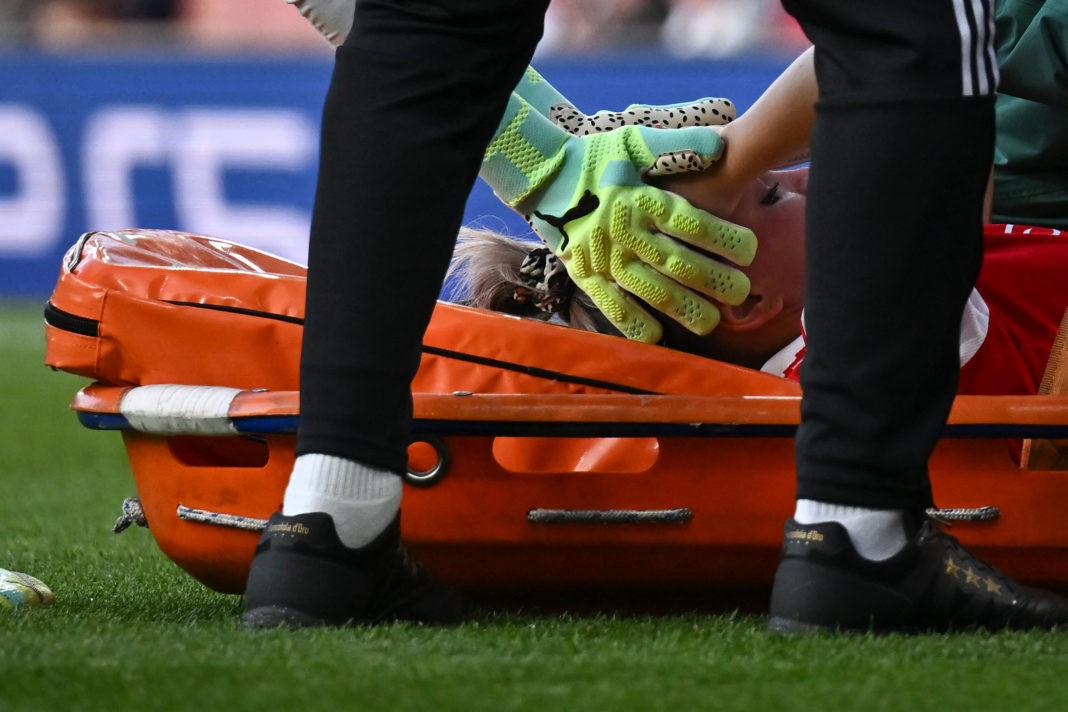Laura Wienroither’s ACL injury highlights a concerning trend at Arsenal and underscores the need for more research into the connection between menstrual cycles and ACL injuries in women.
- Laura Wienroither becomes the fourth Arsenal player this season to suffer an ACL injury.
- The alarming trend raises questions about Arsenal’s approach to injury prevention.
- More research is needed to explore the connection between menstrual cycles and ACL injuries in women.

Arsenal defender Laura Wienroither suffered a devastating ACL injury during the Champions League semi-final match against Wolfsburg, becoming the fourth player in the team to face this setback this season.
Alongside Wienroither, Leah Williamson, Beth Mead, and Vivianne Miedema have also been hit with ACL injuries, raising concerns about the club’s approach to injury prevention and sparking discussions on the connection between ACL injuries, women, and menstrual cycles.
Arsenal’s head coach Jonas Eidevall expressed his concern about the frequency of ACL injuries within the team, stating that the issue is multi-faceted and requires a comprehensive analysis.
More research into menstrual cycles after repeated Arsenal ACLs needed
Eidevall also emphasised the need for cooperation between clubs and the broader football community to address this issue more effectively.
“I’m afraid that there’s not just one single answer on that, it’s a multi-faceted injury,” Eidevall said.
“We need to look at the complete picture and to see what factors in this can we control. What can we learn and what can we do better?
“There are bits that I think clubs can solve themselves internally, but there are also a lot of things that require the whole world of football to cooperate, so we need to do both.”

In 2019, former Arsenal midfielder Jordan Nobbs called for more research into the connection between menstrual cycles and ACL injuries, revealing that many female footballers experience these injuries during their periods.
Current research indicates that oestrogen, a hormone released during menstruation, can increase joint flexibility, potentially contributing to the heightened risk of ACL injuries in women during their menstrual cycles.
However, the strength of evidence remains low, and more extensive observational studies and interventional trials are necessary.
The lack of open discussion about menstrual cycles and their impact on female athletes is concerning.
Clubs like Arsenal and the football community must support further research and encourage open conversations about this topic to develop better prevention strategies and support for female athletes.

